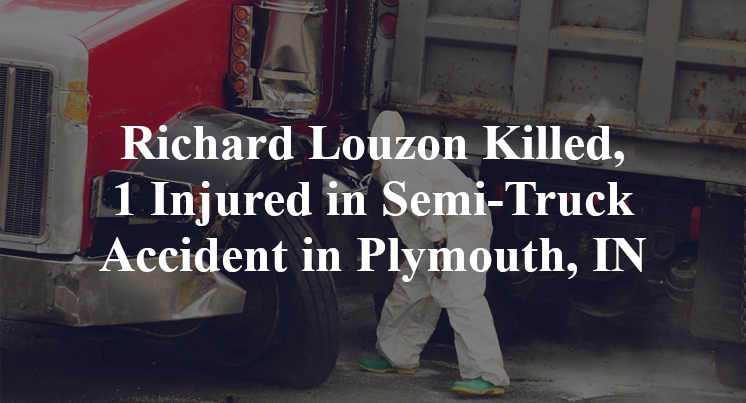Richard Louzon Killed, 1 Injured in Semi-Truck Accident in Plymouth, IN
Marshall County, IN — October 28, 2025, Richard Louzon was killed and a woman was injured after a semi-truck accident at 8:30 a.m. along US 30.
Officials say that the crash happened in West Township at the intersection of US Highway 30 and Queen Road, west of Plymouth.

Investigators said that 77-year-old Richard Louzon and a 20-year-old Walkerton woman were in a pickup going southbound through the intersection. While doing so, authorities say a westbound semi-truck ran the light, crashing into the pickup.
As a result of the collision, Richard Louzon was killed. The woman in the pickup had unspecified injuries, but she was taken from the scene via helicopter. No other injuries were reported.
At this time, potential charges or citations are unclear.
Commentary
When investigators say a semi-truck ran a red light and caused a deadly crash, it may seem like an open-and-shut case. But in my experience, that kind of mistake rarely happens in a vacuum. If the allegation is accurate, the real question becomes why the truck driver ran the light in the first place. In my experience, the root cause often goes back to the driver's employer.
For instance, was the driver rushing to meet an unrealistic delivery window? Were they running on too little sleep because the company’s dispatch schedule pushed the limits of what’s safe or legal? Did they lack proper training or experience? Were they hired despite having a history of negligent behavior? Any one of those factors—often a combination of them—could have contributed to a failure that cost someone their life.
I’ve handled cases where trucking companies kept drivers on the road despite repeated safety violations, or where dash cams and logbooks showed drivers working far past their hours-of-service limits. These aren't just red flags—they’re signs of persistent negligence behind the scenes that can make a crash like this inevitable. Failing to bring that behavior to light and address it allows it to continue, which means others could be harmed in the future if proper steps aren't taken to see there is accountability.
That’s why it’s not enough to say a driver ran a red light and call it a day. Until there’s a closer look into both the truck driver and their employer—training records, scheduling practices, safety policies, etc.—the investigations shouldn't be considered complete.
Key Takeaways
- Running a red light may be the immediate cause, but the deeper issue is why the driver didn’t stop.
- Trucking companies can contribute to crashes through poor training, overwork, or unrealistic delivery demands.
- A full investigation should include company policies, logbooks, dispatch schedules, and safety records.
- Accountability depends not just on blaming a driver, but understanding the conditions that led to their mistake.

“These are essential reads for anyone dealing with the aftermath of a truck wreck”– Attorney Cory Carlson